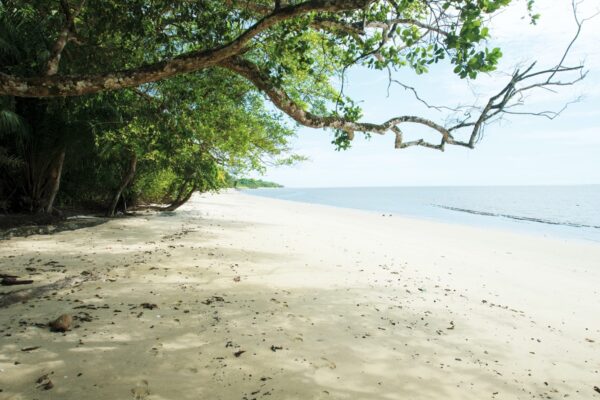Gabon completed mainland Africa’s first-ever “debt-for-nature swap” , refinancing $500 million of its debt and earmarking $163 million in savings for marine conservation, the latest in a burgeoning list of “blue bond” deals.
The central African nation, home to the world’s largest population of leatherback turtles, will spend the money over the next 15 years identifying new marine conservation sites, strengthening the management of existing ones and clamping down on overfishing. It will also fund an endowment that will continue to finance marine-conservation projects (photo: Ralph Messi).
Debt-for-nature swaps
The deal is the latest in a growing list of marine-focused debt-for-nature swaps, also known as blue bonds, that seek to fund sea-life conservation efforts with novel debt refinancing arrangements.
Debt-for-nature swaps see heavily indebted developing nations work with Western banks, conservationists and development finance organizations to pay off a part of their existing sovereign debt, replacing it with a new loan that typically matures later and carries a lower interest rate. As part of the deal, the nation agrees to spend the resulting savings on conservation efforts.
In Gabon’s case, it bought back three bonds, one maturing in 2025 and two in 2031, with a total nominal value of $500 million. In their place, Gabon issued a $500 million blue bond which matures in 2038.
As part of the deal, Gabon has committed to spend $5 million a year from the savings over the next 15 years on marine conservation and fund an endowment that is expected to grow to $88 million by 2038 to continue financing conservation work after that date.
At their simplest, debt-for-nature swaps see a country’s debt bought up by a bank or specialist investor and replaced with cheaper loans, usually with a development finance “credit guarantee” or “risk insurance” helping bring the cost down. The savings are meant to fund conservation.
Ecuador completed a $1.6 billion debt-for-nature swap, the world’s largest, earlier this year, putting $12 million a year toward the conservation of the Galápagos Islands.
Advocates and critics
Advocates of debt-for-nature swaps argue they can serve to funnel huge sums of private money into conservation and climate-friendly projects. Also, this financing arrangement allows developing nations to tackle their debt while funding programs to protect local wildlife and boost their economy.
Some environmental groups, including Greenpeace, have criticized the approach to tackling developing nations’ indebtedness and say the deals don’t provide sufficient benefit to justify the fees paid to the banks involved in the deals.
This story has used reporting from WSJ, FT, Reuters and Bloomberg.
